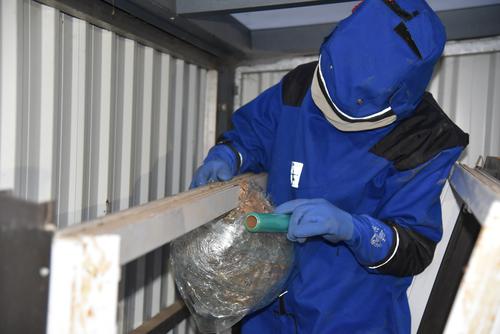The presence of Asian hornets in Belgium is rapidly increasing, according to the Institute for Nature and Forest Research (INBO).
While alarms were ringing this time last year when 17 queens were found in the country and including in Brussels, a colossal 93 hornets have already been spotted this year.
The first Asian hornet appeared in Belgium in 2016, according to Vespa Watch, a citizen-science project funded by the Flemish Government and developed by the Open Science Lab for Biodiversity in conjunction with INBO.
“Since then the species has expanded rapidly. This wasp comes from China. It targets bees and other insects and is considered an invasive alien species. In Belgium, it is monitored. The population is managed by exterminating nests.”
Residents asked to report any nests for destruction
Vespa-Watch is asking citizens to be on the lookout for nests and report them – both so that data can be collected and so that they can be destroyed when possible.
Dit jaar al ruim vijf keer zoveel koninginnen van Aziatische hoornaar gevonden: “Steek ze in diepvries als je ze vindt” Ga naar https://t.co/WLndFUAeSu voor hulp bij de identificatie van de soort. https://t.co/ihjIHlwReC
— INBO - Instituut voor Natuur- en Bosonderzoek (@INBOVlaanderen) May 10, 2022
The strong increase of the invasive species is partly due to a mild winter: because there was little frost, many more queens were able to survive the cold than normally.
The systematic spread of the Asian hornet also has something to do with it: around five queens per nest disperse and can start building a new nest up to 60 kilometres away. The spread of the animal therefore occurs at a lightning speed.
Related News
- Brussels firefighters destroy Asian hornet nest in Schaerbeek
- Murderous Asian hornets terrorise beehives in Limburg
People often find the wasp close to or in their homes: the queen often looks for a sheltered place, low to the ground.
“Because it would take too much time for extermination teams to come and take every queen away from people, we ask you to put the animals in a jar in the freezer,” said Jasmijn Hillaert of the INBO. “That is the safest and friendliest method of controlling the queens.”
The number of nests that will be found this year is still to be seen. In 2021, around two hundred nests were found, which was double the number the year before.

